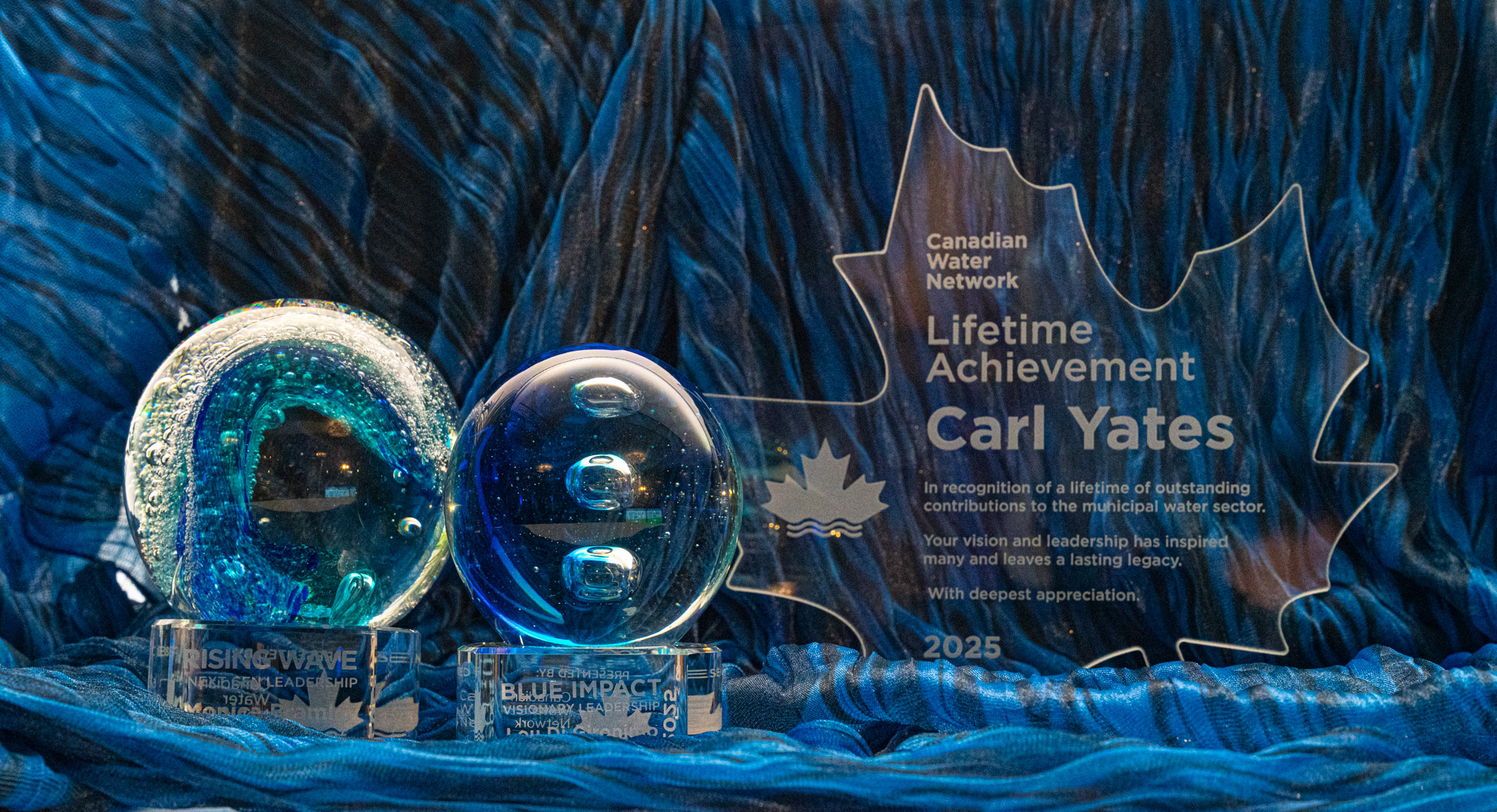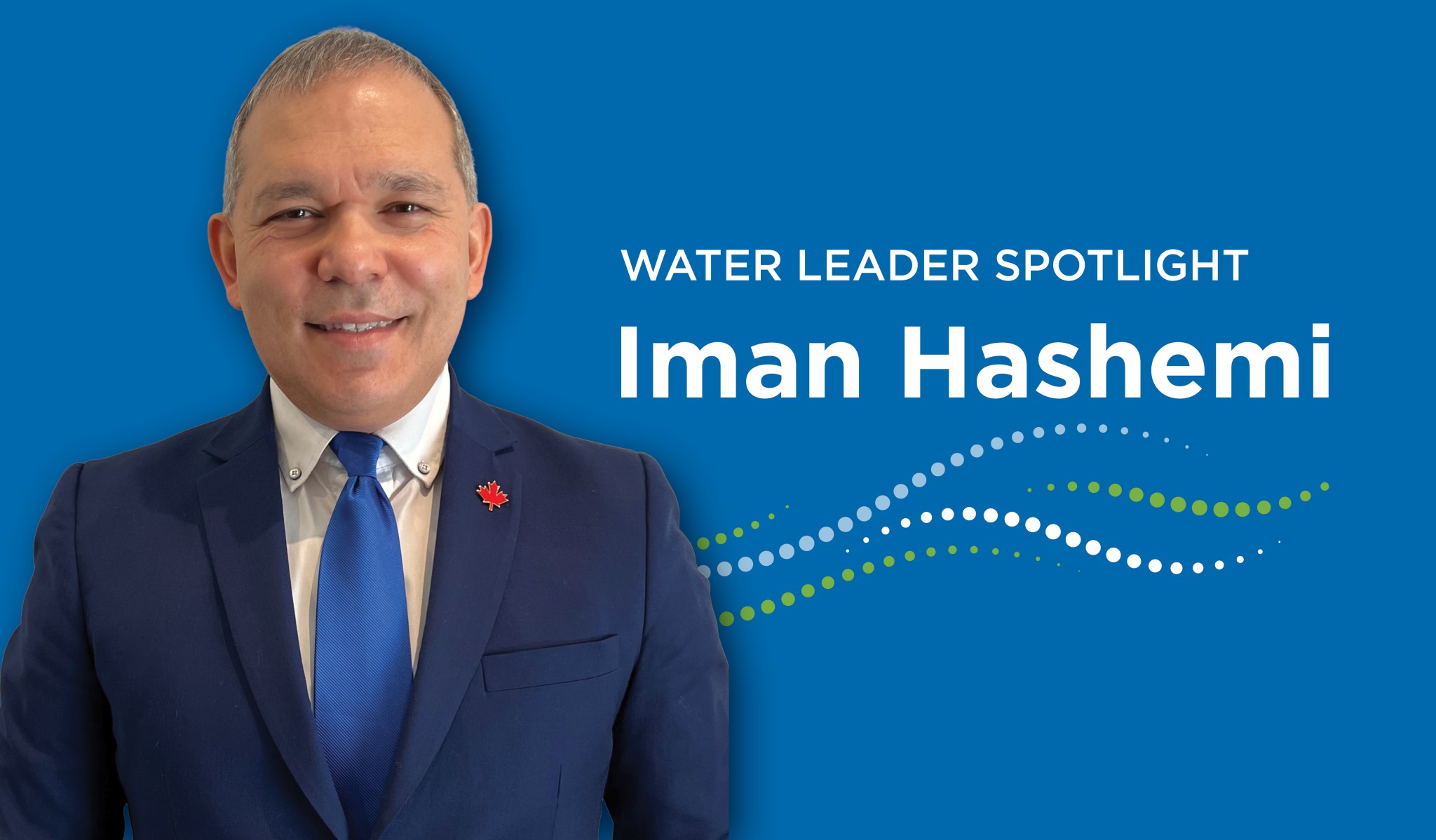News and insights from the Canadian Municipal Water Consortium
March 17, 2025
CWN’s quarterly newsletter with the latest news, insights, and thought leadership.

CWN welcomes Ville de Gatineau to the Canadian Municipal Water Consortium! The consortium supports 26 municipal departments and utilities that service over 25 million people.
Rapid Roundtables for Municipal Consortium Members
Rapid Roundtables are 90-minute rapid-fire facilitated discussions on a specific issue or challenge municipal water utility leaders face. In February, CWN held our first Municipal Consortium rapid roundtable on infrastructure cost escalation. Future roundtables are schedule in March and April on system capacity allocation and the future of our water workforce.
Take advantage of Blue Cities (May 14-15) to procure new strategies
Connection and collaboration are central pillars of the Water and Communities Program. CWN’s Canadian Municipal Water Consortium convenes and connects water leaders across Canada to share insights on pressing challenges. Some of these challenges will be discussed at Blue Cities in May, including managing risks to ensure a level of service that residents in our communities expect to have for their drinking water services and sewage collection and treatment. The perfect storm of aging infrastructure, demand for housing development and cost escalation combine to create a trifecta of pressures on our communities to ensure residents’ expected levels of service. And now, we have the possible impact of tariffs that impact water treatment and water project construction supply chains. These uncertainties come into play when water utility managers and their communities demand that water servicing remain affordable.
Regular discussions among members of the Municipal Consortium focus on risk management strategies. Last fall, at our in-person meeting, members discussed the approaches used to ensure the state of good repair of our infrastructure. Approaches span the need for balancing growth with asset maintenance, dedicated condition assessments, proactive communication to tell the utility’s “story” of the services they provide preemptively so that trust is built, and building risk management into project delivery while being transparent and proactive about sharing risks associated with water utilities.
At Blue Cities, these conversations will continue during sessions on “Water servicing for urban housing” and “New finance and investment strategies in an affordability-challenged landscape.”
The Blue Cities session, “Strategies for effective project delivery” will engage experts in project delivery and discusses new and novel ways to share and mitigate risk when scoping, tendering, procuring and implementing large water management and water infrastructure projects. Lessons learned will be shared by municipal water, construction and project leaders. We will continue this conversation in the fall, when municipal consortium members meet to explore risk mitigation strategies related to procurement. Consortium members, we want to hear from you — Is there a need to collaborate more with the consulting and construction industry to share approaches and risks more deliberately?
An engaged and empowered workforce underpins a successful water utility sector. Strategies for ensuring a strong workforce remain a constant discussion among Municipal Consortium Leaders. There is an ongoing commitment to adopt strategies for knowledge-sharing and peer sharing —perhaps by convening an innovation table to promote dialogue among staff within and between departments to promote collaboration. Profiling workforce strategies will continue with Municipal Consortium members and at Blue Cities in the session, “Transforming the Water Workforce.”












